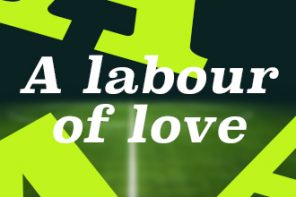It’s strange to think that Celtic’s season mirabilis started with the most humiliating defeat in the club’s history. In front of 1,632 people in Gibraltar’s Victoria Stadium, Celtic lost 1-0 to a goal from police officer Lee Casciaro. The Lincoln Red Imps line-up also included a customs officer, a taxi driver and a fireman.
“This has probably superseded anything that has gone before. It is that bad for the club, it’s that bad for this team and I think Brendan Rodgers realises the size of the task he now has here,” BBC Scotland commentator Liam McLeod said on air.
“It’s inexplicable to think that Celtic are having to come back from a deficit in the second leg of a Champions League qualifier against a side from the overseas British territory of Gibraltar.”
After the game, Rodgers said that there was “no embarrassment” in losing to the part-timers and the football world rolled its eyes as one. Classic Brendan, he hadn’t learned a thing.
Ten months later, Celtic were crowned treble winners and Invincibles, the first team to remain unbeaten during a top-flight season in Scotland since Rangers in 1898/99. That Rangers team played 18 matches; Celtic managed 20 more. Rodgers’s team dropped only eight points.
Rodgers is a difficult manager to warm to, and for some that is a laughable understatement. His time at Liverpool was littered with ‘Brendanisms’, statements and boasts that offered an insight into his self-obsession. He would eventually drown in a river of his own self-promotion, pride coming before a tumbling, endless fall. The ego had crash-landed.
“If you spend more than £100 million, you expect to be challenging for the league,” was Rodgers’ famous assessment of Tottenham, not long before he spent £117 million and took Liverpool from second to sixth, as well as overseeing an abject Champions League campaign.
Then there was the extraordinary optimism. “After that opening 10 or 15 minutes, when they had a bit too much space behind our midfield, it was the near-perfect away performance,” came the claim after a 2-0 defeat to Zenit St Petersburg. Upon being appointed at Anfield, he spoke of reaching “death by football…sucking the life out of the opposition”.
It was Rodgers’s quasi-philosophy that provided the most entertainment. He picked himself as his biggest mentor, spoke of educating players rather than training dogs, building airplanes mid-flight, and the impossibility of surviving without hope. If the accusation was of a deep-seated self-importance, the huge portrait of himself in his lounge hardly disproved the case.
There is a reason for the bravado, of course. Rodgers wore this unwavering self-belief as a padded coat, shielding him from the cold wind of criticism. It also doubled up as a protection for his players, a somewhat warped version of the siege mentality that Alex Ferguson and Jose Mourinho used so effectively during their most successful spells. Making yourself the story is a high-risk management strategy, but it can certainly pay off.
Rodgers’s cliches becoming the most notable aspect of his management made his Liverpool tenure incredibly difficult to judge accurately. Yet whether he was the manager who took the club to the brink of the Premier League title or the man who let all of the goodwill slip away through the holes in his personality, we can all agree on with thing: Rodgers was not as good as he thought.
It was almost unthinkable, then, that he could improve his reputation at Celtic, particularly after that night in Gibraltar. Celtic were in a league of one in the Scottish Premiership, runaway title winners before a ball had been kicked. The best Rodgers could hope for was comfortable domestic success and a favourable Champions League draw, perhaps leading to a run in the Europa League. A group stage alongside Barcelona, Manchester City and Borussia Monchengladbach made that task even more unlikely.
Yet Rodgers has rebounded from his Liverpool failure, and improved upon even the most optimistic predictions for his first season at Parkhead. Not only were Celtic unbeaten during their league season, but they doubled the gap to second place from 15 points under Ronny Deila to 30 points.
While Deila oversaw a Champions League exit before the group stage, and a winless Europa League group stage campaign, Celtic earned plaudits for their home and away performances against Manchester City, plus a creditable draw in Monchengladbach. Rodgers also won both cup competitions to earn Celtic a fourth domestic treble. He can call himself Mr Invincible and be only half giving in to conceit.
Rodgers’s greatest strength as a coach has always been maintaining momentum when on a winning run, and taking players beyond a level they have previously reached. He has developed and nurtured Kieran Tierney, Stuart Armstrong and Moussa Dembele, and reinvigorated Scott Sinclair and Mikael Lustig.
But despite his predictable insistence that Celtic is his spiritual home, it is hard to resist the assumption that Rodgers is using Scottish football as a reboot for his own reputation. He signed a three-year deal in May 2016, but were Stoke, Southampton or Crystal Palace to offer him a job plus a sizeable transfer budget, could he really say no?
Having achieved at least two seasons’ work in the space of one, could you really blame him? Celtic are unlikely to spend significant sums on new players and risk their financial health with the domestic title a foregone conclusion and significant Champions League progress so unlikely.
Rodgers is more aware than most of how a reputation at a high-profile club can quickly go south, but after a season in which no British manager finished in the top eight of the Premier League, none finished in the Championship’s top six, and the England manager was promoted from within, he can lay claim to be top of that particular class.
Part of his desire to return to the Premier League will be his determination to prove his critics wrong. Any story that ends with ‘and I had the last laugh’ surely makes it onto Rodgers’s reading list.
As ever, he would be advised to walk before he can run. If he believes his Celtic success has earned him a top-six team in the Premier League, perhaps he should think again. His task in Glasgow – namely assembling a squad of players on a budget and making them greater than the sum of their parts – is more equivalent to his success at Swansea, not Liverpool.
Yet this should not be the time for negative spin. There will be those who remain convinced that this is a managerial reputation built on a blend of bravado and clever PR, but in Glasgow Rodgers has at least taken several steps along the road to redemption.
“I couldn’t have written the script any better,” he said after Celtic’s treble was confirmed via a late winner in the Scottish Cup final against Aberdeen. That may be true for this season, but a man like Rodgers is never not thinking several steps into the future. The next chapter of this story involves a glorious return and a manager serving humble pie on a silver platter to assorted guests.






